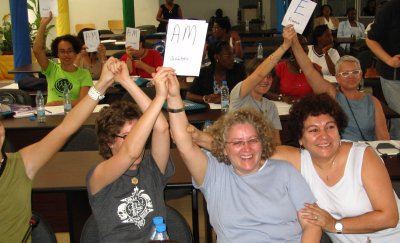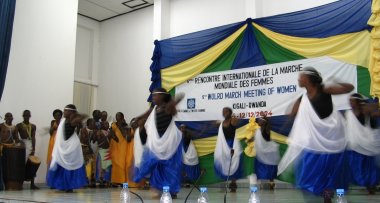5th International Meeting
ADOPTION OF THE WOMEN'S GLOBAL CHARTER FOR HUMANITY
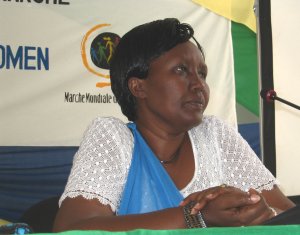 December 4, 2004 - First day of the International meeting. Delegates and observers participating in the 5th international meeting of the World March of Women met in Kigali (Rwanda). During the first day, participants had time to meet and exchange. The meeting is organized by Profemmes, the Rwandan coordinating body of the World March. Profemmes' President, Mrs. Jacqueline Rusilibya, welcomed the participants. Mrs. Aquiline Niwemfura, representing the Minister for Gender and Promotion of the Family, opened the meeting. The opening session concluded with a performance of traditional Rwandan dancing, drumming and singing. On behalf of the International Committee, Mrs. Awa Ouedraogo, from Burkina Faso, expressed the Committee members' strong commitment to promoting freedom, equality, justice, peace and solidarity. Diane Matte, coordinator of the March stressed the importance of this meeting.
Women will be discussing the Women's Global Charter for Humanity. Workshops are also being held to discuss the history of the World March of Women, communications, collectives and working groups, etc. |
|
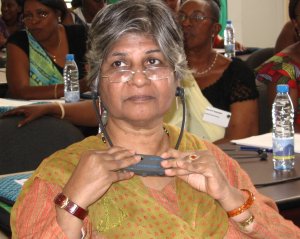 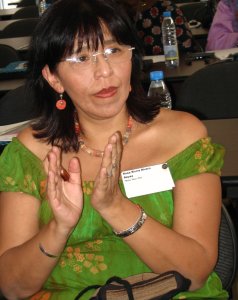 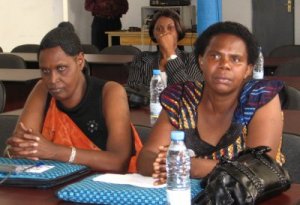 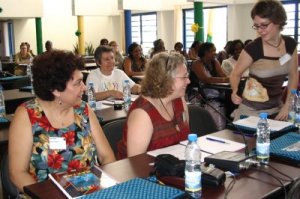 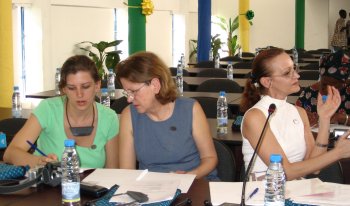 |
|
December 7, 2004 - VISIT TO THE RWANDAN GENOCIDE MEMORIAL Genocide or wanton and mass killing of people had been in effect in Rwanda as early as the 1990s though not at such a large scale as the 1994 one. Prior to the 1994 100 days of genocide, there were rivalries between two the main tribes of Hutus and Tutsi in Rwanda. The whole rivalry originated from hate perpetuated and encouraged by Rwanda’s Belgian colonizers. Tutsi were originally viewed to be more superior, rich and intelligent than the Hutus by the then colonizers. On 6 April 1994, a dark day to last three months began in Rwanda. The genocide that the world knows today erupted on a large scale five days after Rwandan President Juvenal Habyarimana’s plane was shot down whilst on his way from a peace-making mission in Arusha Tanzania. Evidence according to survivors spoken to and information at the memorial museum indicates that perpetrators of the genocide were waiting for just such an occasion to start their wanton hate killings. A total of one million people were killed and massacred in the 1994 genocide. Many more are survivors with scars and horrific stories to tell today. What is more painful with the Rwandan genocide is that it was all based on hate and propaganda. Victims were killed at random: poor, rich, children, elderly, men, women, youth, political affiliation and tribe. The memorial museum apart from providing a burial site for genocide victim’s remains also provides historical build-up and evidence of the genocide. There are samples of weapons used in the killings, clothes worn by victims, pictures and identities of some of the victims. Clothes were also used in the identification of victims. It is important to note here that the Rwandan genocide was committed and stopped by the Rwandan people. In July 1994, eight political parties that had not participated in the genocide formed a transitional government of national unity and began the task of rebuilding the country. Since the genocide, national unity and reconciliation have been considered the only way of transforming Rwanda and guiding the country to lasting peace. The World March of Women delegates’ visit to the genocide memorial museum ended with the laying of wreaths on one of the memorial sites and symbolic releasing of doves in the air. This was a very emotional and sad occasion for both visitors and Rwandans present in the delegation. It is also proper to point out at this moment that women in Rwanda have been instrumental in bringing peace and stability to the development process in the country. Pro-femmes the local women’s network that collaborates with the World March of Women has been at the forefront of women’s development process in the country. Pro-femmes helped to organize visits to women’s projects in Kigali for the World March of Women meeting delegates. Delegates visited projects on women against violence, women victims of genocide, micro-credit and a fundraising association for women that also runs a school on its premises. The World March of Women meeting on this day concluded with discussions, moral and verbal support to Rwandan women and suggestions on actions to be undertaken by women’s groups in Rwanda and the African Great Lakes Region. Lettie Longwe, World Association of Community Radio Broadcasters (AMARC) |
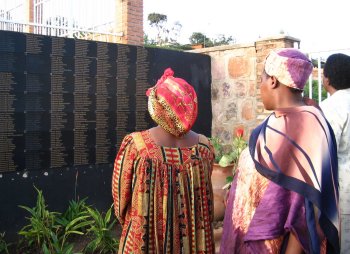 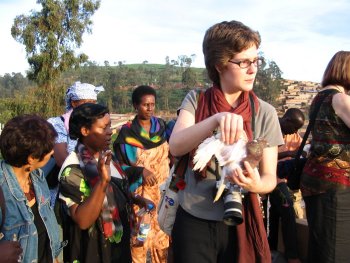 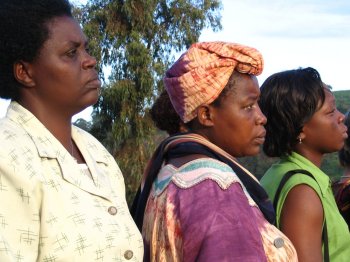 |
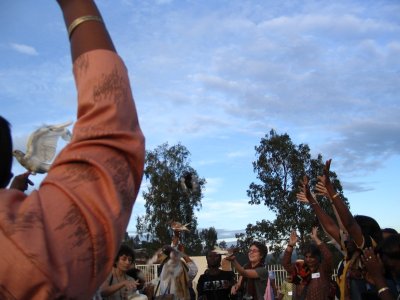 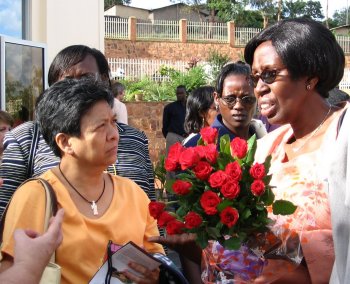 |
Last modified 2006-04-07 04:03 PM
This item is available in
Français, English, Español



